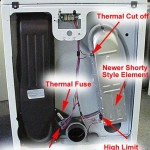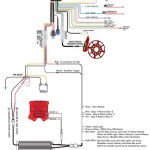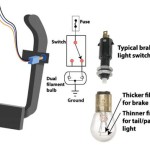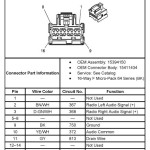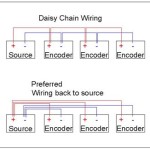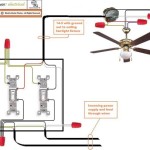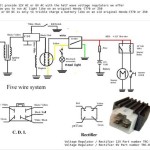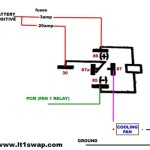A hitch wiring harness is a critical electrical component for vehicles equipped with a trailer hitch. It connects the vehicle’s electrical system to the trailer, providing power for brake lights, taillights, turn signals, and other essential functions. For instance, the Curt 24801 Custom Tow Harness simplifies the connection process by adapting to specific vehicle models, ensuring proper electrical communication.
Hitch wiring harnesses enhance safety by ensuring that all trailer lights are functional, improving visibility and reducing the risk of accidents. They also simplify the installation process, eliminating the need for complex wiring and reducing potential electrical hazards. The development of plug-and-play harnesses, such as the Tekonsha E-Z Wiring Kit 118303, has further streamlined the installation process.
In this article, we will delve deeper into the key features, benefits, and selection criteria for hitch wiring harnesses. By providing comprehensive insights into this essential towing component, we aim to empower readers with the knowledge necessary to make informed decisions when upgrading their towing capabilities.
Understanding the essential aspects of hitch wiring harnesses is paramount for ensuring the safe and efficient operation of towing systems. These aspects encompass a wide range of considerations, including compatibility, functionality, durability, and ease of installation.
- Compatibility: Ensuring compatibility with specific vehicle models and trailer types.
- Functionality: Providing reliable power to all trailer lights and electrical components.
- Durability: Withstanding harsh environmental conditions and the rigors of towing.
- Ease of Installation: Simplifying the installation process, reducing time and effort.
- Safety: Enhancing safety by ensuring proper electrical communication between the vehicle and trailer.
- Customization: Tailoring the harness to specific towing needs and preferences.
- Cost: Considering the price range and value for money.
- Brand Reputation: Taking into account the reliability and track record of different manufacturers.
- Warranty: Seeking harnesses with comprehensive warranties for peace of mind.
- Reviews: Reading reviews from other users to gain insights into real-world performance.
These aspects are interconnected and play a crucial role in optimizing the towing experience. By carefully considering each aspect, individuals can select the most suitable hitch wiring harness for their specific needs, ensuring the safe and reliable operation of their towing systems.
Compatibility
When selecting a hitch wiring harness, compatibility is of utmost importance. A compatible harness ensures that the electrical systems of the vehicle and trailer can communicate seamlessly, enabling the proper functioning of all trailer lights and electrical components. Without compatibility, the harness may not be able to provide power to the trailer, leading to safety hazards and potential legal issues. For instance, if a trailer’s turn signals are not functioning due to an incompatible wiring harness, it could result in accidents or traffic violations.
To achieve compatibility, wiring harnesses are designed specifically for certain vehicle models and trailer types. Vehicle manufacturers provide detailed specifications for the electrical systems of their vehicles, including the pin configuration of the towing connector. Wiring harnesses are then engineered to match these specifications, ensuring a secure and reliable connection. For example, the CURT 56164 Custom Wiring Harness is designed to be compatible with specific Ford F-150 models, providing a plug-and-play solution for trailer light functionality.
Understanding the significance of compatibility allows individuals to make informed decisions when selecting a wiring harness for their towing needs. By ensuring compatibility, they can avoid potential electrical issues, safety hazards, and legal complications. Moreover, it simplifies the installation process, as compatible harnesses are designed to integrate seamlessly with the vehicle’s electrical system, minimizing the need for modifications or additional wiring.
Functionality
Functionality is a critical aspect of hitch wiring harnesses, ensuring that all trailer lights and electrical components receive reliable power. Without functional wiring, essential safety features such as brake lights, turn signals, and taillights may not operate correctly, posing significant safety hazards. Furthermore, malfunctioning electrical components can lead to legal issues and penalties, as it is a legal requirement in many jurisdictions to have properly functioning trailer lights.
Hitch wiring harnesses are designed to provide a secure and reliable connection between the vehicle’s electrical system and the trailer. High-quality harnesses utilize durable materials and robust construction to withstand the rigors of towing, ensuring uninterrupted power supply even in demanding conditions. By transmitting electrical signals effectively, wiring harnesses enable the trailer’s lights and electrical components to function as intended, enhancing visibility and communication on the road.
Real-life examples of functionality within hitch wiring harnesses include the ability to power LED lights, charge batteries, and operate specialized equipment on trailers. Advanced wiring harnesses may incorporate modules to regulate voltage and protect against electrical shorts, ensuring the longevity of both the harness and the connected components. Understanding the importance of functionality allows individuals to appreciate the role of wiring harnesses in maintaining safe and efficient trailer operation.
In conclusion, functionality is a fundamental aspect of hitch wiring harnesses, directly impacting the safety and reliability of towing systems. By providing reliable power to all trailer lights and electrical components, wiring harnesses ensure that trailers are visible and compliant with legal requirements. When selecting a wiring harness, prioritizing functionality is crucial to avoid potential hazards and ensure a seamless towing experience.
Durability
Durability is a critical component of hitch wiring harnesses, as they are subjected to harsh environmental conditions and the rigors of towing. Exposure to moisture, extreme temperatures, road debris, and vibrations can take a toll on wiring harnesses, potentially leading to electrical failures and safety hazards. Durable wiring harnesses are engineered to withstand these challenges, ensuring zuverlssig operation and longevity in demanding towing applications.
High-quality wiring harnesses utilize robust materials and construction techniques to enhance durability. Corrosion-resistant connectors, heavy-duty wiring, and protective sheathing safeguard the harness from moisture, dirt, and abrasion. Additionally, some harnesses incorporate features such as waterproof seals and strain relief to withstand the rigors of towing, preventing damage from excessive flexing or pulling.
Real-life examples of durability within hitch wiring harnesses include the ability to withstand exposure to rain, snow, ice, and extreme temperatures. They are also designed to handle the stress of rough roads, off-road trails, and frequent trailer connections and disconnections. Durable wiring harnesses are essential for ensuring reliable electrical performance, preventing costly repairs or replacements, and maintaining safety on the road.
Understanding the significance of durability empowers individuals to make informed decisions when selecting a hitch wiring harness. Prioritizing durability ensures that the harness can withstand the demands of towing, providing peace of mind and long-term reliability. By choosing durable wiring harnesses, individuals can avoid potential electrical issues, safety hazards, and costly repairs, contributing to a safe and enjoyable towing experience.
Ease of Installation
Ease of installation is a critical aspect of hitch wiring harnesses, as it directly impacts the time and effort required to connect the harness to the vehicle and trailer. A well-designed wiring harness should be straightforward to install, allowing users to complete the process efficiently and without encountering major difficulties or frustrations.
Real-life examples of ease of installation within hitch wiring harnesses include features such as plug-and-play connectors, pre-assembled components, and clear instructions. These features minimize the need for complex wiring or modifications, making the installation process accessible even for individuals with limited electrical experience. Additionally, some wiring harnesses come with mounting brackets and hardware, allowing for secure and convenient installation without the need for additional purchases.
Understanding the importance of ease of installation empowers individuals to select wiring harnesses that align with their skill level and time constraints. By prioritizing ease of installation, they can avoid potential delays or complications during the installation process, ensuring a smooth and hassle-free experience. Moreover, user-friendly wiring harnesses contribute to the overall satisfaction and enjoyment of towing, allowing individuals to focus on their journey rather than technical difficulties.
Safety
In the context of “Hitch Wiring Harness,” the aspect of “Safety: Enhancing safety by ensuring proper electrical communication between the vehicle and trailer.” takes center stage due to its critical role in ensuring the reliable functioning of essential safety features. This aspect encompasses a multifaceted approach aimed at maintaining seamless electrical communication, allowing the vehicle and trailer to operate in sync and respond appropriately to various driving conditions.
-
Proper Lighting:
A properly functioning wiring harness ensures that all trailer lights, including brake lights, turn signals, and taillights, are operational. This enhances visibility, enabling other drivers and road users to anticipate the trailer’s movements and react accordingly, reducing the risk of accidents.
-
Brake Synchronization:
Reliable electrical communication between the vehicle and trailer is crucial for synchronized braking. The wiring harness facilitates the transmission of signals from the vehicle’s brake controller to the trailer’s brakes, ensuring that both the vehicle and trailer decelerate simultaneously. This prevents potential jackknifing or trailer sway, enhancing overall stability and safety.
-
Electrical Power:
The wiring harness serves as a conduit for electrical power, allowing the vehicle to supply electricity to the trailer. This ensures that essential trailer components, such as interior lighting, refrigeration units, and battery chargers, can function properly. Maintaining a stable electrical connection prevents power outages and ensures the safe and efficient operation of these components.
-
Legal Compliance:
In many jurisdictions, it is a legal requirement to have properly functioning trailer lights and electrical systems. The wiring harness plays a pivotal role in meeting these legal obligations. By ensuring that all electrical components are connected and operational, individuals can avoid potential fines or penalties and contribute to overall road safety.
The multifaceted nature of “Safety: Enhancing safety by ensuring proper electrical communication between the vehicle and trailer.” underscores its critical importance in the broader context of “Hitch Wiring Harness.” By maintaining seamless electrical communication, wiring harnesses empower drivers to tow with confidence, knowing that their trailers are visible, responsive, and compliant with safety regulations. Ultimately, this aspect contributes to a safer and more enjoyable towing experience for all.
Customization
Within the realm of “Hitch Wiring Harness,” the aspect of “Customization: Tailoring the harness to specific towing needs and preferences” emerges as a crucial consideration, empowering users to adapt and configure their wiring harnesses to align precisely with their unique towing requirements and preferences.
-
Wire Gauge and Length:
Customization allows users to select the appropriate wire gauge and length for their specific application. Heavier gauge wires can handle higher amperage, while longer wires may be needed for trailers with extended frames or specialized equipment.
-
Connector Type:
Different trailers and vehicles utilize varying connector types. Customization enables users to choose the correct connector type to ensure a secure and compatible connection between the harness and the vehicle’s electrical system.
-
Additional Features:
Some wiring harnesses offer additional features such as integrated modules for brake controllers, reverse lights, or battery charging. Customization allows users to tailor the harness to include these features, enhancing functionality and convenience.
-
Mounting Options:
Customization extends to mounting options, enabling users to choose harnesses with brackets or hardware that best suit their vehicle’s configuration and provide secure mounting solutions.
By embracing customization, users can optimize their towing experience, ensuring that their wiring harnesses seamlessly integrate with their vehicles and trailers. Customization empowers them to address specific needs, enhance functionality, and achieve a tailored towing solution that aligns with their unique requirements and preferences.
Cost
When selecting a hitch wiring harness, cost is a practical consideration that can influence the overall towing experience. Understanding the relationship between cost and value for money is crucial for making informed decisions and optimizing the investment in a reliable and functional wiring harness.
The cost of a wiring harness can vary depending on several factors, including its features, quality, brand reputation, and the complexity of the installation. Higher-priced harnesses typically offer more features, better durability, and compatibility with a wider range of vehicles and trailers. It’s important to consider the long-term value of the harness, taking into account factors such as longevity, reliability, and the potential cost of repairs or replacements down the road.
Real-life examples illustrate the importance of considering both cost and value. A low-cost wiring harness may seem like a bargain initially, but if it fails prematurely or requires frequent repairs, it could end up costing more in the long run. Conversely, a higher-priced harness may provide years of trouble-free operation, justifying the initial investment. By striking a balance between cost and value, individuals can make informed choices that align with their specific towing needs and budget.
Understanding the cost-value relationship empowers consumers to make wise purchasing decisions. It also encourages manufacturers to produce high-quality wiring harnesses that offer good value for money. By considering cost and value together, individuals can optimize their towing experience and enjoy the peace of mind that comes with a reliable and efficient wiring harness.
Brand Reputation
When selecting a hitch wiring harness, considering the brand reputation of different manufacturers can greatly impact the overall towing experience. Brand reputation serves as an indicator of reliability, quality, and customer satisfaction, directly influencing the performance and longevity of the wiring harness.
Manufacturers with a strong brand reputation have consistently produced high-quality wiring harnesses that meet or exceed industry standards. They invest in research and development, employ skilled engineers, and utilize advanced manufacturing techniques to ensure the reliability and durability of their products. Positive customer reviews, industry recognition, and a proven track record of satisfied users are all testaments to a manufacturer’s commitment to excellence.
Real-life examples abound in the industry. CURT, Tekonsha, and Hopkins are among the most reputable brands known for their innovative designs, rigorous testing procedures, and exceptional customer support. These manufacturers have earned their reputation by consistently delivering wiring harnesses that withstand the rigors of towing, ensuring reliable electrical communication between vehicles and trailers.
Understanding the connection between brand reputation and hitch wiring harness quality empowers consumers to make informed purchasing decisions. By choosing a reputable brand, individuals can increase the likelihood of selecting a durable, reliable, and feature-rich wiring harness that will enhance their towing experience. Moreover, supporting reputable manufacturers encourages them to maintain high standards, continue innovating, and prioritize customer satisfaction, ultimately benefiting the entire towing community.
Warranty
When selecting a hitch wiring harness, considering the warranty offered by the manufacturer is a prudent decision that can provide peace of mind and protection against potential defects or failures. A comprehensive warranty serves as a guarantee of the product’s quality and durability, ensuring that consumers can invest in a wiring harness with confidence.
-
Coverage Period:
The coverage period of a warranty is a crucial factor to consider. Extended warranties provide longer periods of protection, offering greater peace of mind and financial security in the event of any issues arising after purchase.
-
Parts and Labor:
A comprehensive warranty should cover not only the wiring harness itself but also the cost of labor associated with its replacement or repair. This ensures that consumers are not burdened with unexpected expenses in the event of a warranty claim.
-
Easy Claim Process:
A straightforward and hassle-free claim process is essential for a positive warranty experience. Manufacturers with user-friendly warranty registration procedures and responsive customer support teams make it easier for consumers to file and resolve warranty claims.
-
Manufacturer Reputation:
The reputation of the manufacturer plays a significant role in the value of a warranty. Companies with a history of honoring their warranties and providing excellent customer service are more likely to stand behind their products and offer peace of mind to consumers.
A comprehensive warranty not only protects consumers financially but also serves as an indicator of the manufacturer’s confidence in the quality of their product. By choosing a wiring harness with a strong warranty, individuals can reduce the risk of unexpected expenses, ensure hassle-free repairs or replacements, and enjoy peace of mind knowing that their investment is protected.
Reviews
When selecting a hitch wiring harness, considering reviews from other users is a valuable practice that can provide real-world insights into the performance and reliability of different products. Reviews offer firsthand experiences and unbiased opinions, empowering consumers to make informed purchasing decisions and avoid potential pitfalls.
-
Product Features and Functionality:
Reviews often discuss specific features and functions of the wiring harness, providing practical information on its capabilities, ease of use, and compatibility with various vehicles and trailers. Real-life examples include comments on the harness’s ability to power all trailer lights, its plug-and-play installation, and its compatibility with specific vehicle models.
-
Durability and Longevity:
Reviews can shed light on the durability and longevity of the wiring harness under real-world conditions. Users share their experiences with the harness’s resistance to harsh weather, rough roads, and frequent towing, providing valuable insights into its long-term performance. Examples include reports on the harness’s ability to withstand extreme temperatures, its resistance to corrosion, and its overall reliability over extended periods of use.
-
Installation and Setup:
Reviews often provide practical feedback on the installation and setup process of the wiring harness. Users share their experiences with the harness’s ease of installation, the clarity of instructions, and the availability of technical support. Real-life examples include comments on the harness’s straightforward mounting system, its clear and comprehensive instructions, and the helpfulness of the manufacturer’s customer service.
-
Troubleshooting and Support:
Reviews can provide valuable information on the troubleshooting process and the level of support offered by the manufacturer. Users share their experiences with resolving issues, accessing technical assistance, and obtaining warranty support. Examples include comments on the manufacturer’s responsive customer service, the availability of troubleshooting guides, and the ease of obtaining replacement parts.
Reading reviews from other users offers a wealth of information that can help consumers make informed decisions when selecting a hitch wiring harness. By gaining insights into the real-world performance, durability, ease of use, and customer support associated with different products, individuals can increase their chances of choosing a harness that meets their specific needs and expectations.










Related Posts

